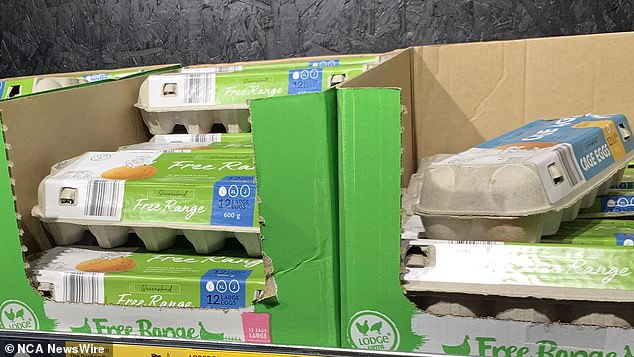- Coles imposes limit on popular items
- No limits at Woolworths or Aldi
Coles shoppers have been limited to buying two cartons of eggs due to supply chain issues caused by a bird flu outbreak.
Limitations have been imposed in all stores except Western Australia.
Signs posted in stores read: Due to egg shortages, we have introduced a temporary limit of two items per customer/transaction.’
‘This will help maintain availability and support as many customers as possible.
“Thank you for your patience, we apologize for any inconvenience caused.”
Coles shoppers have been limited to buying two cartons of eggs due to supply chain issues caused by a bird flu outbreak (file image)
A similar message is displayed for online customers.
“We are working closely with all our suppliers to ensure eggs continue to be available to our customers and are providing support to the industry to respond to cases of avian vlu in Victoria,” a Coles spokesperson said.
Currently, there are no purchase limits at Woolworths or Aldi.
As of June 7, the highly infectious H7N3 and H7N9 strains of bird flu have been detected at five Victorian poultry farms, including four properties in Meredith and one farm near Terang.
It is feared that up to 600,000 chickens will need to be culled, putting enormous pressure on supply chains.
Sites where cases have been detected have been closed and movement restrictions have been imposed around the farms.

Signs posted in stores read: Due to egg shortages, we have introduced a temporary limit of two items per customer/transaction” (file image)
Agriculture Victoria says the latest detection was not unexpected and said the authority was taking all precautions to limit the spread of flu.
“This demonstrates that Agriculture Victoria’s reasonable, risk-based control and restricted areas and comprehensive and ongoing surveillance activities are working as they should to detect the spread of the disease,” a statement said.
Domestic birds, ducks, geese, turkeys, guinea fowl, quail, pheasants, emus and ostriches are the species most susceptible to bird flu; However, all bird species are believed to be susceptible to the virus.

